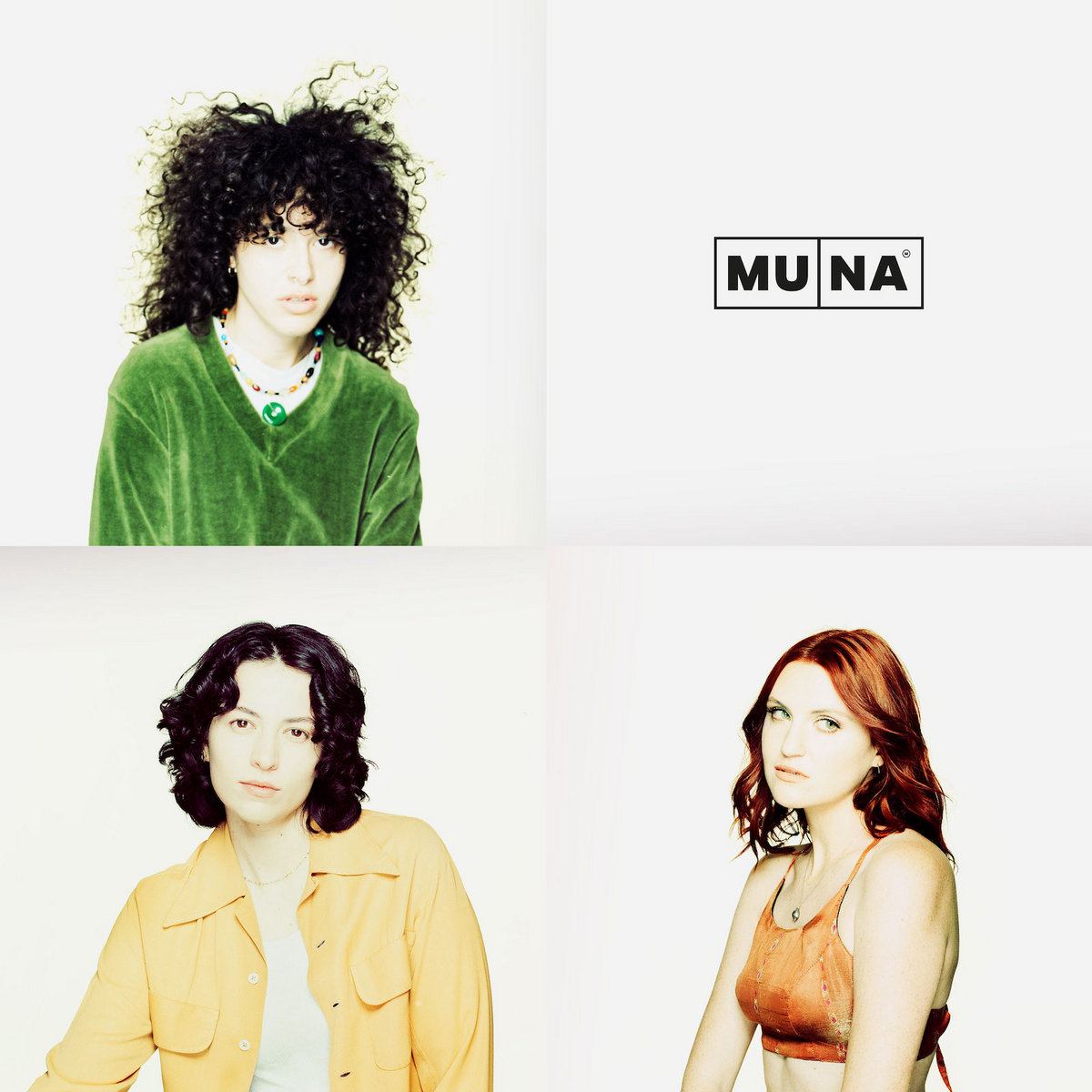MUNA
MUNA
SADDEST FACTORY
ABOVE THE CURRENT
The other day a lesbian friend tweeted something about noticing an uptick in the number of formerly straight-identifying women coming out as queer lately. My first thought was, does this have something to do with “Silk Chiffon”? The lead single from LA trio MUNA’s self-titled third album is a flawless, effervescent candy-floss daydream of soft-femme sapphism, an ode to fun, freedom, and flirtation powered by ’90s-set alt-pop production and an appearance by indie girl-crush Phoebe Bridgers (who also released the album on her Saddest Factory label). It makes for a persuasive advertisement for being a lesbian—if I wasn’t one already, I might be considering it now.
I actually hated “Silk Chiffon” the first few times I heard it after its release last fall. Its buoyant, carefree joy and bubbly demeanor doesn’t exactly fit the current mood, the way that the nihilistic neo-horrorcore rap of Sematary or the glitched-up retro-futuristic fantasies of the entire hyperpop movement do so well. But the song and the band are impossible to resist, and “Silk Chiffon” has now found a place on my crucial “listening in the shower while I get ready to go out” playlist, a jolt of fizzy euphoria that makes it so much easier to walk out the door and into a world that seems to get more hostile every day.
The rest of the album provides a gorgeous setting for its perfect gem of a breakthrough hit. None of the other 10 tracks—most of them breakup songs, in one way or another—reach the same sublime heights or undeniable singalong-ability, but there’s also not a flop among them. Its opening half in particular is one of the more stunning sequences of tracks to come out in recent memory, spanning an impressive range of sounds and moods in a handful of songs: “What I Want,” a gay-club-ready track about going out to the gay club, delivers taut, body-moving electro-pop that would slot in perfectly between new Gaga and vintage Kylie Minogue. The minor-key “Runner’s High” adds noisy aggression into the mix as it tries to sort out the knotty blend of anxiety, excitement, and heartache that comes with starting a new chapter in your life after a romance crashes. The country-tinged, sad-but-sweet “Home by Now” sounds like a long-lost collaboration between Pet Shop Boys and Emmylou Harris.
Pleasure is the primary currency of pop music, and the variegated landscape of pop in 2022 offers a full spectrum of flavors, from the masochistic bliss of hard-driving dance tracks, to the sweet ache of intimate bedroom indie, to the hedonistic narco-escapism that’s permeated hip-hop and R&B. MUNA offers a type of pleasure that’s hard to find much of these days: complex but uncomplicated, emotionally intelligent, and aimed at transcendence. It may be out of step with the prevailing mood, but that’s part of what makes it so special, so necessary.
It’s easy right now to sink into feelings of hopelessness and despair. There’s a lot happening in this world that makes giving up make sense—and there’s pleasure in feeling bad, especially when everyone around you feels the same way. But if there’s anything to learn from the queer movement of the past half-century—and queer musicians in particular—it’s that finding ecstasy and hope in a world that’s actively trying to eradicate them is one of the most powerful, radical acts humans are capable of. If you can look past the burning world around you to focus on the joy that can still be found there—to honestly and truly say “Life’s so fun”—is there anything you can’t do?







